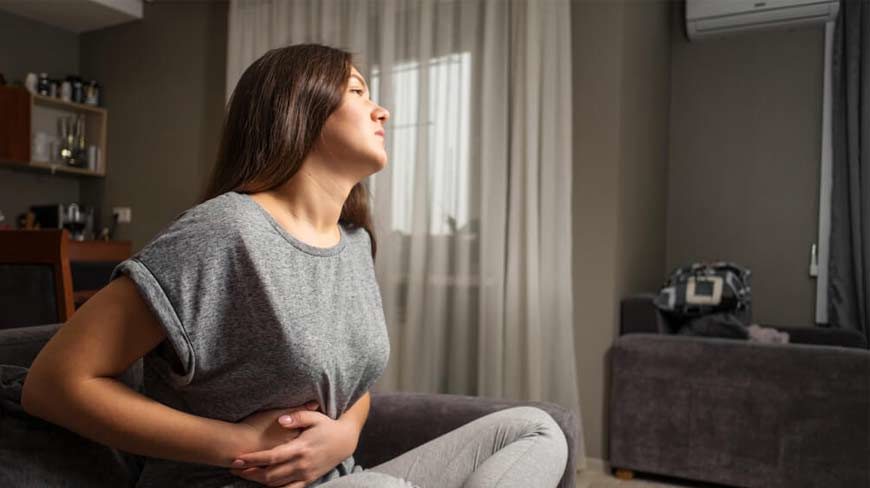Gallstones: How Do You Know You Have Them?
Gallstones happen when substances in your gallbladder harden into stones, ranging from tiny to the size of a golf ball.
The gallbladder sits under your liver and stores bile. Your liver makes bile to digest fat. It releases the bile through a duct that connects to your liver and small intestine.
People with gallstones don’t always have symptoms, but the symptoms can be very uncomfortable if a gallstone blocks a duct.
Nearly 25 million people are estimated to have gallstones. But how can you tell if you have them?
Symptoms of Gallstones
Most gallstones don’t cause symptoms unless they block a duct. When they do cause symptoms, it’s called a gallbladder attack. Attacks often occur after heavy meals, and the onset of symptoms is frequently at night.
The most common symptom is abdominal pain that may feel achy or sharp and stabbing.
You may also experience:
- Back pain between the shoulder blades
- Diarrhea
- Fever, chills
- Gas
- Heartburn
- Jaundice
- Loss of appetite
- Nausea, vomiting
- Right shoulder pain
- Sudden and quickly worsening pain in the upper right abdomen and/or below the breastbone
The pain may last from a few minutes to a few hours.
What Causes Gallstones?
The exact cause of gallstones is not known, but they may result from:
- Excess cholesterol in the bile – Bile can usually dissolve cholesterol, but if the liver excretes more than the bile can handle, the excess cholesterol may form crystals.
- Excess bilirubin in the bile – Bilirubin is produced when the body breaks down red blood cells. If the liver makes too much bilirubin, the excess may form stones.
- Slow or inadequately emptying gallbladder – Bile may become concentrated, contributing to the formation of stones if the gallbladder doesn’t empty often enough or entirely.
The two main types of gallstones are identifiable by color:
- Cholesterol (most common) – Stones made mostly of undissolved cholesterol. They tend to be yellow or greenish.
- Pigment gallstones – The stones formed from an excess of bilirubin tend to be dark brown or black.
Are You at Risk for Developing Gallstones?
Some factors that increase your risk for developing gallstones include:
- Age over 40
- Diabetes
- High-fat, high-cholesterol, or low-fiber diet
- Family history
- Liver disease
- Metabolic syndrome
- Obesity
- Pregnancy
- Prolonged fasting
- Rapid weight loss
- Sedentary lifestyle
- Medications that contain estrogen
- Stasis of the gallbladder
- Blood disorders like leukemia or sickle cell anemia
Females have gallstones more frequently than males. Native Americans and people with Hispanic or Mexican heritage are also more at risk for them.
Complications of Gallstones
Gallstones are generally harmless but can lead to serious complications like:
- Blocked common bile duct – A blocked duct can cause jaundice, severe pain, and infection of the bile duct.
- Blocked pancreatic duct – A blocked pancreatic duct can cause painful pancreatitis.
- Gallbladder cancer – Even though it’s very rare, people with gallstones have an increased risk of developing gallbladder cancer.
- Gallbladder inflammation – A gallstone stuck in the neck of the gallbladder can cause cholecystitis, inflammation that can cause fever and severe pain.
When to See a Doctor
Symptoms of gallstones can come and go as the stone or stones move around in the gallbladder. You should see a doctor if you have any of the following symptoms during or after a gallbladder attack:
- Abdominal pain so intense that you can’t get comfortable
- Chills
- Clay-colored stool
- Fever
- Pain lasting longer than 5 hours
- Sweating
- Yellowing of the whites of your eyes and skin (jaundice)
How to Reduce Your Risk of Developing Gallstones
- Certain lifestyle choices can help prevent gallstones, including:
- Don’t skip meals
- Eat high-fiber foods
- Lose weight slowly, if weight loss is needed
- Maintain a healthy weight
Don’t suffer from the symptoms of gallstones – schedule an appointment now!
Related:


